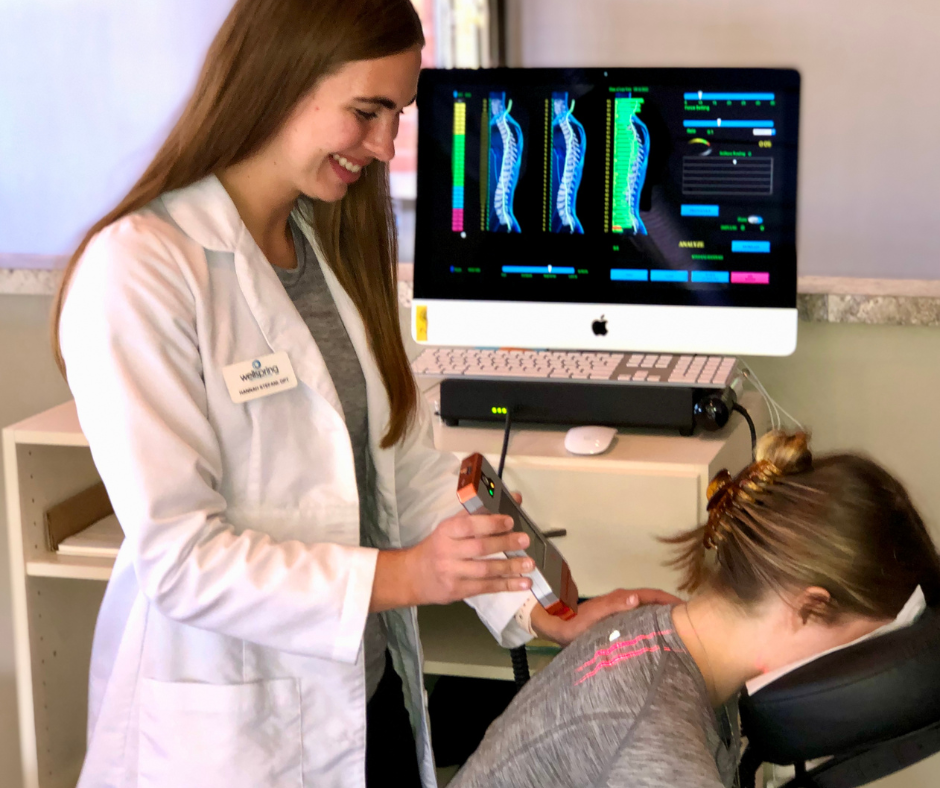You have a deadline to meet by Thursday afternoon and you haven’t even started. As the time presses closer, your blood pressure rises and your heart beats faster, you lose sleep trying to get it together. Now throw in a pounding headache because you’re officially—STRESSED. OUT. You push through your stress; you make your deadline, and exhale a sigh of relief. Thursday continues to be a regular day and life goes on.
Sound Familiar? You’re part of the vast majority of Americans affected by stress on a regular basis.
Stress in Eden Prairie is something that most of us deal with. But do we realize the impact it’s having on us?—on our health? Many (many, MANY) of the patients and clients I work with day-to-day rate their stress as moderate to high. Why is that?? There are so many different causes or sources of stress: work stress, financial stress, emotional and social stress including relationships and other personal factors…not to mention another layer of stress for some brought on by anxiety or depression.
Is Stress Normal? Or Common?
To a lot of people, dealing with such high stress has become a “normal” part of life. I find that many people confuse “normal” and “common”, or at least tend to use them interchangeably. We do live in a high-stress society so it certainly is common for people to have high levels of stress. But that doesn’t make it normal to experience negative side effects or symptoms of stress on a regular or daily basis.
How Stress Affects Your Health
Stress can have a negative impact on your physical health, with the most common effects of stress being: headaches, muscle tension, pain, sleep problems, and upset stomach, according to Mayo Clinic. But don’t be fooled, the effects of stress go even beyond those more common symptoms! Many of your body’s systems, organs, and tissues can be negatively affected. The American Institute Of Stress explains it in detail:
Nervous System– When stressed, your body goes into “fight or flight” response. This signals the adrenal glands to release adrenaline and cortisol. These hormones make the heart beat faster, raise blood pressure, and change the digestive process.
Musculoskeletal System– Under stress, muscles tense up. This can trigger tension headaches, migraines, and other musculoskeletal conditions.
Cardiovascular System– Acute (momentary stress) causes an increase in heartrate and stronger contractions of the heart muscle. Repeated episodes of acute stress can cause inflammation in the coronary arteries which is thought to lead to a heart attack.
Reproductive System– Chronic stress can impair testosterone and sperm production in men, causing impotence. In women, stress can cause absent and irregular menstrual cycles.
In addition, studies have shown that people who experience chronic pain (prolonged physical pain that lasts longer than the natural healing process should allow) are often dealing with a number of stress-related symptoms that may be due to recent or past trauma. I find that many patients with chronic pain have had difficulty managing their symptoms with traditional care that doesn’t always consider the impact that stress and emotional health have on pain. Susanne Babbel PH.D, MFT states in her article in Psychology today, “During a traumatic event, the nervous system goes into survival mode and sometimes has difficulty reverting back into its normal, relaxed mode again. If the nervous system stays in survival mode, stress hormones such as cortisol are constantly released… Physical symptoms start to manifest when the body is in constant distress.”
Patients I work with regularly, just like most of society, experience some of these symptoms but hardly ever attribute them to stress.
Managing Stress and the Effects on Your Health
It’s not all bad news! Our bodies and minds have the amazing ability to manage the negative effects and symptoms of stress (Wahoo! Go Us!), BUT change doesn’t happen on its own. When you prioritize your health, there are lots of natural, drug-free options to address muscle tightness, headaches, and sleep problems, etc.
Spending time learning and practicing stress management techniques is a good place to start. There are some great relaxation techniques to reduce stress such as deep breathing, massage, meditation and yoga. You already know that exercise is a key component to staying healthy but how can you get moving to manage stress? Guess what—the options are endless! Any form of activity from aerobic exercise to playing with your grandchildren can act as a stress reliever. Find something you love, get moving, and start de-stressing!
At Wellspring, our holistic approach to care means we look at the body as a whole—taking into account the impact of emotional health and its effect on the body. We take care of the whole person, not just the body part that hurts!
Experiencing the effects of stress? Take advantage of the FREE pain and injury screenings offered at Wellspring Health Center and schedule your appointment TODAY!




